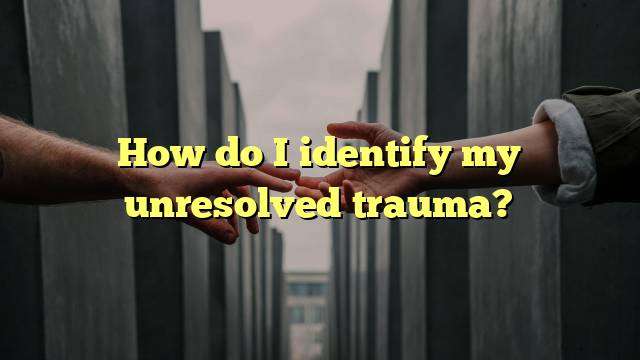Unresolved Trauma: Recognizing the Symptoms
Unresolved trauma can have a devastating effect on a person’s life. People who have experienced trauma in the past are more likely to experience anxiety, depression, and even physical illness. It is important to identify unresolved trauma in order to seek help and begin the healing process.
Signs and Symptoms
Unresolved trauma can manifest itself in a variety of ways. Some of the most common signs and symptoms of unresolved trauma include:
- Unexplainable Anger: People who are struggling with unresolved trauma may feel an overwhelming sense of anger. This anger may be expressed through irritability, outbursts, or even physical aggression.
- Flashbacks or Reoccurring Memories: People who have experienced trauma may have vivid memories of the traumatic event. These memories can be triggered by certain smells, sounds, or even certain situations.
- Sleeplessness: People struggling with unresolved trauma can often have difficulty sleeping. They may experience nightmares or night sweats, or they may struggle to fall asleep.
- Anxiety/Panic Attacks: People with unresolved trauma may experience anxiety or panic attacks, which can be overwhelming and debilitating.
- A Constant State of High Alert: People with unresolved trauma may feel like they are always on guard, feeling jumpy or in danger.
The Impact of Unresolved Trauma
Unresolved trauma can have a profound impact on a person’s life. People who have experienced trauma may experience a variety of physical, psychological, and emotional symptoms.
Physical Symptoms
People with unresolved trauma may experience a variety of physical symptoms, such as:
- Headaches: People with unresolved trauma may experience headaches or migraines.
- Stomach issues: People with unresolved trauma may experience digestive issues, such as nausea, vomiting, or abdominal pain.
- Muscle tension: People with unresolved trauma may experience muscle tension or soreness.
- Fatigue: People with unresolved trauma may experience extreme fatigue or exhaustion.
- Changes in appetite: People with unresolved trauma may experience changes in appetite, such as overeating or not eating enough.
Psychological Symptoms
People with unresolved trauma may experience a variety of psychological symptoms, such as:
- Depression: People with unresolved trauma may experience feelings of sadness, worthlessness, or hopelessness.
- Anxiety: People with unresolved trauma may experience excessive worry or fear.
- Intrusive thoughts: People with unresolved trauma may have intrusive thoughts or images related to the traumatic event.
- Difficulty concentrating: People with unresolved trauma may have difficulty concentrating or focusing.
- Confusion: People with unresolved trauma may experience a sense of confusion or disorientation.
Emotional Symptoms
People with unresolved trauma may experience a variety of emotional symptoms, such as:
- Fear: People with unresolved trauma may feel a sense of fear or dread.
- Anger: People with unresolved trauma may feel an overwhelming sense of anger.
- Guilt: People with unresolved trauma may feel guilty or ashamed.
- Shame: People with unresolved trauma may feel embarrassed or ashamed.
- Numbness: People with unresolved trauma may feel numb or disconnected.
Getting Help For Unresolved Trauma
If you are struggling with unresolved trauma, it is important to seek help. Treatment for unresolved trauma can help you to manage your symptoms and begin the healing process.
Therapy
Therapy can be an effective way to address the symptoms of unresolved trauma. Cognitive Behavioral Therapy (CBT) is a type of therapy that can help you to recognize and challenge your negative thought patterns, and to develop healthier coping skills.
Medication
Medication can be used to help manage the symptoms of unresolved trauma. Medication can help to reduce anxiety, depression, and other symptoms. It is important to work with your doctor to find the right medication for you.
Support Groups
Support groups can be a helpful way to connect with others who are struggling with unresolved trauma. Support groups can provide a safe and supportive environment to share your experiences and to get the support you need.
Conclusion
Unresolved trauma can have a devastating impact on a person’s life. It is important to recognize the signs and symptoms of unresolved trauma in order to seek help and begin the healing process. Therapy, medication, and support groups can be effective ways to manage the symptoms of unresolved trauma and to begin the healing process.




